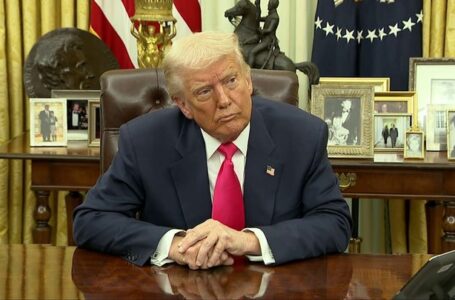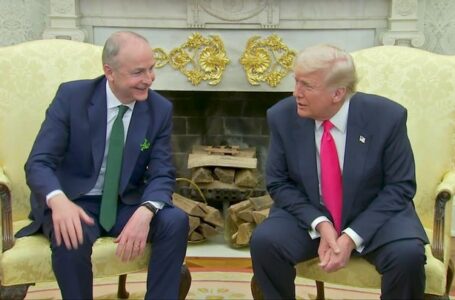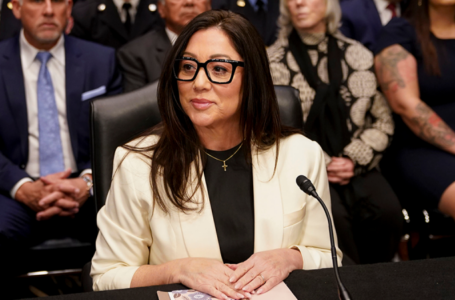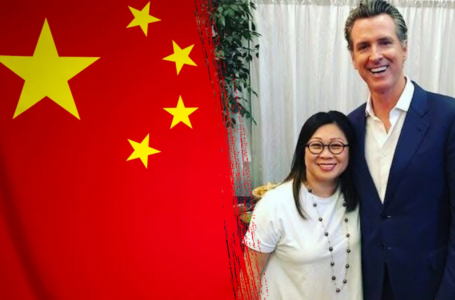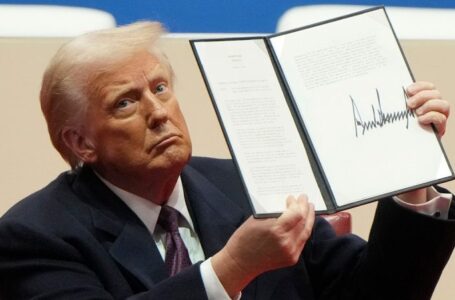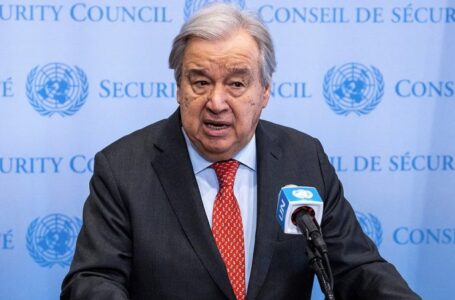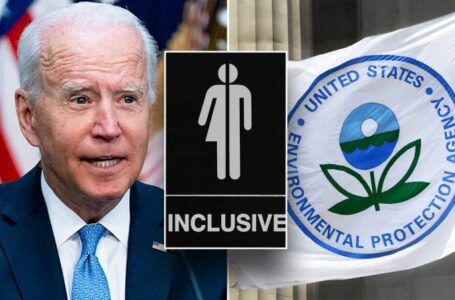Inside Trump’s ouster of Ronna McDaniel as RNC chair
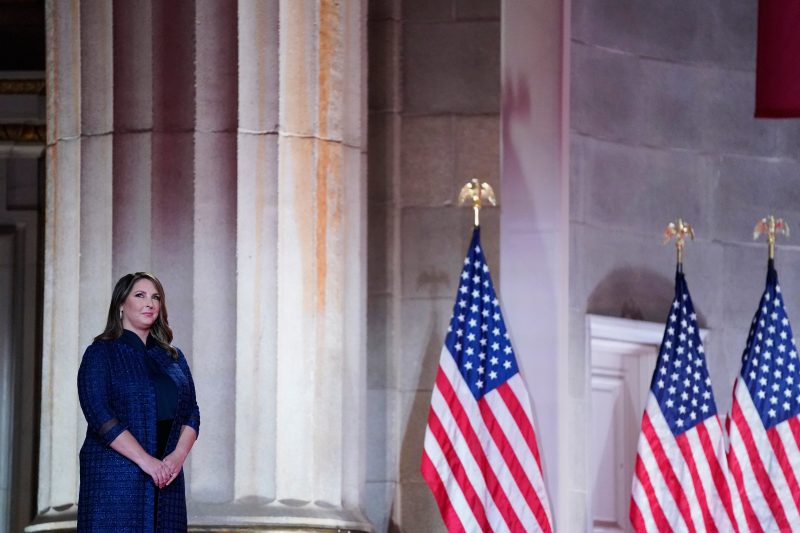

For much of the fall, Donald Trump was annoyed at Republican National Committee Chair Ronna McDaniel. She was refusing to cancel the party’s primary debates, insisting to him that they were crucial to the early presidential nominating process, that they were actually helping him and that other candidates and members would complain.
“People are really mad at you,” Trump warned McDaniel in one of their many phone calls, recounting both public and private criticism he said he heard about her. “They’re mad at you.”
At one point, McDaniel said the nominee deserves an RNC chair they trust and said she would resign if Trump became the nominee and wanted her out.
Trump — who personally liked McDaniel — did not immediately accept her offer. But the moment epitomized McDaniel’s long and tumultuous relationship with the former president, which began when she ran Trump’s successful 2016 effort in her home state of Michigan once he became the party’s nominee; solidified when he chose her as RNC chair in late 2016; and is now winding to a fraught conclusion as Trump seeks to retake the White House — this time with someone else at the party’s helm.
“She’s been kissing his butt for years,” said Bill Palatucci, a New Jersey committeeman. “But loyalty is a one-way street with Donald Trump.”
This account of McDaniel’s rise and fall at the RNC is based on interviews with 14 Republicans close to Trump and McDaniel.
McDaniel’s looming departure first emerged following an in-person meeting at Trump’s private Mar-a-Lago Club in Palm Beach, Fla., earlier this month. Then on Monday, Trump released a statement suggesting his daughter-in-law and two others as leaders of the RNC going forward.
McDaniel, the second woman ever to lead the RNC, prepares to end her tenure — the longest for a GOP leader — with some accomplishments. Advisers say she helped raise more than $1.5 billion for the organization, helped launch WinRed — a small-dollar fundraising platform for Republicans that now rivals the Democratic behemoth, ActBlue — and created a permanent department to fund election-related lawsuits.
Trump often praises her for helping him win Michigan in 2016. And she enjoyed wide support among the committee’s 168 members, winning a record four elections as chair.
But despite spending much of her time working to placate the former president — a tempestuous and nearly implacable personality — she regularly sparked the ire of Trump, a boss who demands loyalty from his subordinates but rarely returns it. Meanwhile, the Republican Party has repeatedly lost or underperformed in national and state elections in recent years, is dealing with turmoil in a number of state parties key to 2024, and has far less money than the Democratic National Committee.
McDaniel also encountered deep skepticism and hostility from the hard-right, grassroots wing of the party, who viewed her — the niece of Sen. Mitt Romney (R-Utah) and granddaughter of the late Michigan Gov. George Romney — as establishment royalty to be overthrown. Mitt Romney, for his part, warned McDaniel about continuing to stay in the role after Trump left office, a person familiar with his outreach said. He declined to comment.
People close to Trump described McDaniel’s departure as being driven by a confluence of factors that caught his attention, including the primary debates, a cash crunch, a stretch of negative news media attention, election defeats that he refused to take blame for and complaints from campaign allies and donors.
But the crux of Trump’s frustration with McDaniel, fairly or unfairly, hinged on fights over money and the 2020 election. During that race, the Trump campaign and the RNC regularly clashed, with the campaign believing that the RNC was not sufficiently supporting it financially and the RNC arguing it was doing as much as it could and that Trump’s operation was flawed.
Through a spokeswoman, McDaniel declined to comment for this story. A Trump spokesman also declined to comment.
McDaniel’s problems with Trump grew further after a gathering of Republican donors in Houston last fall. There, donors who had grown frustrated with McDaniel’s leadership of the RNC criticized McDaniel to Trump and said they might not give going forward. The former president, this person added, was taken aback.
More recently, the RNC disclosed it had just about $9 million on hand, its lowest amount since 2015, according to Federal Election Commission reports — roughly half of the $17.7 million the DNC reported. Party officials say they expect that number to soon climb, and that Democrats benefit from holding the White House — but Trump and his advisers were upset about the party’s standing.
And so, by the time McDaniel traveled to South Florida for a meeting with Trump on the first Monday of February, her ouster was essentially a foregone conclusion. The only question was one of timing.
Her departure was unfortunate, said Henry Barbour, an influential committee member from Mississippi who has criticized McDaniel at times. “Trump was listening to the wrong people whistling and whispering in his ear,” Barbour said. “Ronna wasn’t perfect but she has done a lot for the party.”
One of Trump’s repeated criticisms of McDaniel was that she did not forcefully back his false claims of election fraud in 2020 — and that, in his words, she did not do more in that cycle to block states from changing election laws during the coronavirus pandemic. (The RNC was subject to a decades-long federal ruling, called a consent decree, that limited its activities challenging votes and election laws until it was lifted in 2018.)
“She’s not good on election integrity,” Trump would grumble repeatedly, people close to him said.
In the days after the November election, McDaniel and her team tried to help Trump fight his loss in battleground states, even winning a minor court case in Pennsylvania. McDaniel even took part in arranging alternate — false — electors, according to the Jan. 6 congressional committee and federal prosecutors. McDaniel and many of her top advisers were either eventually subpoenaed or questioned as part of the federal probe, which examined the party’s fundraising off election claims during the period, among other things.
But after Rudy Giuliani, one of Trump’s attorneys, held a widely panned news conference at RNC headquarters — hair dye apparently dripping down his face — and after his ragtag gang of lawyers made an escalating series of false claims, McDaniel backed away from defending Trump on TV. RNC lawyers also concluded that claims from Trump’s lawyers were hogwash, leading to clashes between the teams.
In recent days, Trump repeatedly mentioned he thought Michael Whatley, the chair of the North Carolina Republican Party, would do more to fight for what he viewed as election integrity. In North Carolina, he told one adviser, no one brought in boxes of ballots after Election Day to swing the election to Democrats — a reference to false allegations he and some of his allies made about other states.
Many Republicans view McDaniel’s inaction in 2020 as her cardinal sin, said Stephen K. Bannon, the former president’s strategist and host of the “War Room” podcast.
“We saw the RNC not do anything beforehand and afterward,” he said, echoing the false claim that Biden lost. “That’s the burning heart of this issue. This is a MAGA revolt to take over the Republican Party.”
McDaniel repeatedly told Trump that she was going to work harder ahead of 2024 on “election integrity” and tried to defend her actions in 2020. The party has filed 77 lawsuits in the 2024 cycle and created a permanent “Election Integrity Department,” RNC officials said. But in some cases, McDaniel told others that she just couldn’t back Trump’s most outlandish claims.
During the 2020 election, McDaniel also regularly clashed with Trump’s campaign leaders.
Most of the fights were about money, as the campaign struggled financially at times while the RNC was flush with cash. Trump campaign advisers say McDaniel and her staff were secretive and ended the campaign with tens of millions of dollars in their bank account that could have been spent on Trump.
Trump was generally on good terms with McDaniel during the 2020 election, though he would occasionally grow annoyed or make snide remarks to the chairwoman, people familiar with the matter said.
McDaniel’s team says Trump was surrounded by an inept coterie of advisers, leading the RNC to produce their own TV advertisements, and that much of the money that remained was designated for other bills.
Still, Trump’s aides were enraged when the RNC sent money to other committees designed to win House and Senate seats for Republicans in the final weeks of the election, as the party had in past cycles.
By the end of the campaign, McDaniel and Trump’s team were barely on speaking terms even as she continued to speak with Trump — and told him he needed a better team.
On the night of Jan. 6, 2021, McDaniel was ensconced in a suite of the Ritz Carlton on Amelia Island, Fla., for a RNC meeting. She was running for reelection, but McDaniel had broken her foot and was traversing with a motorized wheelchair.
“How bad is this?” she asked one aide about the attack.
She later told people that, with her team stuck in back-to-back meetings, she had not immediately realized how fully out of control the situation in Washington had spiraled.
She put Trump on speakerphone when he called the next day.
“We love you!” chanted RNC members, less than 24 hours after the Capitol had been cleared. He told the members he backed McDaniel.
It was among the first signs Trump was going nowhere, and he and McDaniel were still inextricably bound.
By that spring, McDaniel came under criticism for moving part of the party’s donor retreat to Mar-a-Lago. McDaniel defended herself by saying her members wanted to be there.
Soon, she was enmeshed in Trump-related court cases — and agreed to pay at least some of Trump’s legal bills, angering some members. She began trekking to Trump’s properties to meet regularly. She signed onto a heavily-criticized resolution that defended some of the alternate electors as participating in “legitimate political discourse,” pleasing Trump.
The two had a good relationship and she worked to keep it that way. McDaniel could also be candid with Trump privately.
McDaniel, for example, counseled Trump to wear a mask during the covid pandemic, even as other advisers did not. Before the 2020 debate in Nashville, she stood backstage with Trump and urged him to “flirt with the American people.” His performance was viewed as vastly better than the first debate.
She also convinced Trump to cut a video for a new RNC program called “Bank Your Vote,” which encourages voting early by mail — techniques Trump had long attacked to the detriment of Republicans. Trump has since said voting should all be done on Election Day.
“Honey,” he would say to her. “You’re doing great.”
But he was also constantly asking others about McDaniel and hearing from her critics unprompted. In 2023, McDaniel began to clash with Trump’s team over the primary debates, as the organization struggled to raise money and criticism on the right grew. Trump would repeatedly mock her for saying she was “neutral.” She also stopped paying his legal bills when he became a candidate.
Battles over primary debates began at the Four Seasons in Nashville, hours before Trump spoke to top GOP donors last April. Chris LaCivita, one of Trump’s top aides, argued loudly with David Bossie, who was leading the debate process for the RNC. LaCivita wanted to cut RNC debates. Bossie and McDaniel would not agree.
Over the course of several months, Bossie and LaCivita continued to disagree in phone calls, according to people familiar with the matter, while Trump kept expressing bewilderment to advisers that she was scheduling more. “Why is she doing this?” he asked one.
“People in the non-Trump campaigns claimed she was too pro-Trump, and Trump people claimed she was anti-Trump, undermining him and wasting money,” said Richard Porter, a national committeeman from Illinois, who praised McDaniel.
The beginning of the end of McDaniel’s tenure came in November, when tech entrepreneur Vivek Ramaswamy, then a GOP primary candidate, called for her ouster at a debate in Miami. She was “apoplectic,” one person who spoke with her said, and spent the evening calling allies despondent and asking if she should attack back.
McDaniel had been unhappy for months, complaining to “almost anyone who would listen,” said a person in regular touch with her. At times, she had questioned whether she should have even sought a fourth term, according to a person who talked to her, and that she did not expect things to go this way.
Now, the steady drumbeat of criticism that began in 2022 grew into a cacophony.
Kim Borchers, a national committee member from Kansas, said she was flooded with emails and calls attacking McDaniel after the 2022 midterms. She responded to more than 100 of them, hearing a list of complaints about McDaniel that, she said, originated in the right-wing echo chamber and were unfounded. Borchers said she often could convince critics otherwise.
“Critics have been beating her up since the day she won that last election,” Borchers said. “It is just terrible.”
Bannon and Charlie Kirk, founder of Turning Point USA, were effectively waging opposition to McDaniel in part because she previously used Romney as her middle name, said Porter, the McDaniel ally. McDaniel dropped Romney from her name in 2017 after Trump suggested she do so, but she has said that is not why she abandoned the name.
“They made Ronna the face of the establishment — they froze her and they polarized her,” Porter said.
McDaniel sought to assuage factions that wanted her ouster. At least once, she went over to see Bannon at his Capitol Hill townhouse a few blocks from the RNC.
“Her presentation was very good,” he said, recounting extensive RNC efforts she said were happening. “It’s just not reality. None of this is happening.”
For their part, RNC officials say they boosted the number of donors to 2.9 million in the midterms, built community centers across the country and grew their email and texting files to record numbers — and that their presentation to Bannon was entirely factual.
Meanwhile in private, LaCivita, told others that RNC staff had too little campaign experience or were insufficiently loyal to Trump — and that he planned to overhaul the building. On Monday, Trump announced he asked LaCivita to serve as the RNC’s chief operating officer, along with Whatley as chair and Lara Trump as co-chair.
“The president was being forced to defend her constantly,” one person said. About three weeks ago, Trump started saying a change was needed, and McDaniel flew to Florida.
Unknown to her, Trump had already taped two interviews saying a new RNC chair was needed before she arrived.
One of her final moves as RNC chair was to publicly say Trump would be the nominee during a Fox News interview on the night of the New Hampshire primary, drawing criticism from challenger Nikki Haley and some fellow RNC members.
McDaniel told others she wanted to begin fundraising with Trump — and he was clearly certain to win.
It did not work.
On Monday, Trump decided to issue a statement about new RNC leadership, weeks before he previously said he would.
While McDaniel knew her days were probably over, Trump’s statement upset her, people who talked to her said. It did not even mention her and implicitly criticized the party.
“The RNC MUST be a good partner in the Presidential election. It must do the work we expect from the national Party and do it flawlessly,” he wrote, adding: “Every penny will be used properly. New Day.”
She said nothing publicly in response. And soon she was on the phone, trying to schedule a March meeting for members to formally approve Trump’s choice of her replacement.

